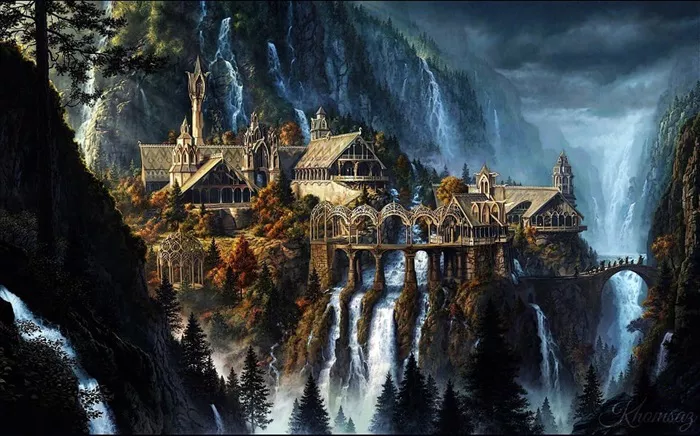Fantasy literature transports readers to imaginative realms, offering an escape from reality through tales of magic, mythical creatures, and epic adventures. But what exactly defines a book as fantasy? Let’s delve into the essential elements that characterize this captivating genre.
World-Building: Crafting Alternate Realities
At the heart of every fantasy novel is its setting—a world distinct from our own, yet rich and immersive. World-building involves creating unique landscapes, cultures, and histories that make the imaginary world feel authentic. This process allows readers to experience new realities, whether it’s a portal fantasy like C.S. Lewis’s The Chronicles of Narnia, where characters transition between our world and a magical land, or high fantasy like J.R.R. Tolkien’s The Lord of the Rings, set entirely in a meticulously crafted universe.
Magic Systems: The Essence of the Extraordinary
Magic is a cornerstone of fantasy fiction, introducing elements that defy the laws of nature. A well-developed magic system adds depth and intrigue to the narrative. These systems can range from hard magic, with strict rules and limitations, to soft magic, which is more mysterious and undefined. For example, Brandon Sanderson’s Elantris presents a hard magic system with clear constraints, while J.K. Rowling’s Harry Potter series offers a softer approach, focusing on the wonder of magic.
Mythical Creatures and Races: Populating Imagined Worlds
Fantasy worlds are often inhabited by beings beyond human, such as dragons, elves, and talking animals. These creatures enrich the story, embodying various themes and challenges. In The Chronicles of Narnia, talking animals and mythical beings play pivotal roles, while in A Song of Ice and Fire by George R.R. Martin, dragons symbolize both destruction and rebirth.
The Heroic Journey: Characters Facing Extraordinary Challenges
Central to many fantasy tales is the hero’s journey—a narrative arc where protagonists embark on quests, confront formidable adversaries, and undergo personal transformation. These characters often start as ordinary individuals who, through trials and tribulations, discover their true potential. Think of Frodo Baggins in The Lord of the Rings, whose simple beginnings lead him into an epic battle between good and evil.
Conflict Between Good and Evil: Thematic Depth
Fantasy literature frequently explores the battle between opposing forces, delving into moral complexities and ethical dilemmas. This conflict is not always black and white; characters may grapple with their own flaws and choices. In A Song of Ice and Fire, alliances shift, and characters’ motivations are layered, prompting readers to question the nature of heroism and villainy.
Escapism and Allegory: Beyond Entertainment
While fantasy provides an escape from reality, it also serves as a mirror to our world, reflecting societal issues, personal struggles, and universal truths. Authors use fantastical settings to comment on real-life themes, allowing readers to engage with complex ideas in an accessible manner. For instance, Jonathan Strange & Mr Norrell by Susanna Clarke blends historical events with magic, exploring themes of power, friendship, and ambition.
Subgenres: Diverse Narratives Within Fantasy
The fantasy genre is not monolithic; it encompasses various subgenres, each offering unique storytelling styles and themes. Some notable subgenres include:
Epic Fantasy: Characterized by grand narratives, large casts, and high stakes, often set in entirely fictional worlds. Example: The Wheel of Time series by Robert Jordan.
Grimdark Fantasy: Known for its dark, gritty tone, and morally ambiguous characters. Example: The First Law series by Joe Abercrombie.
Historical Fantasy: Merges historical settings with magical elements. Example: His Majesty’s Dragon by Naomi Novik.
Urban Fantasy: Integrates magical elements into contemporary, real-world settings. Example: The Dresden Files by Jim Butcher.
Conclusion
Fantasy literature captivates readers through its imaginative settings, magical systems, diverse characters, and exploration of profound themes. By blending elements of the extraordinary with reflections on the human condition, fantasy offers both escapism and insight. Whether through epic quests, intricate world-building, or allegorical tales, fantasy continues to enchant and provoke thought, solidifying its place as a cherished and enduring literary genre.

